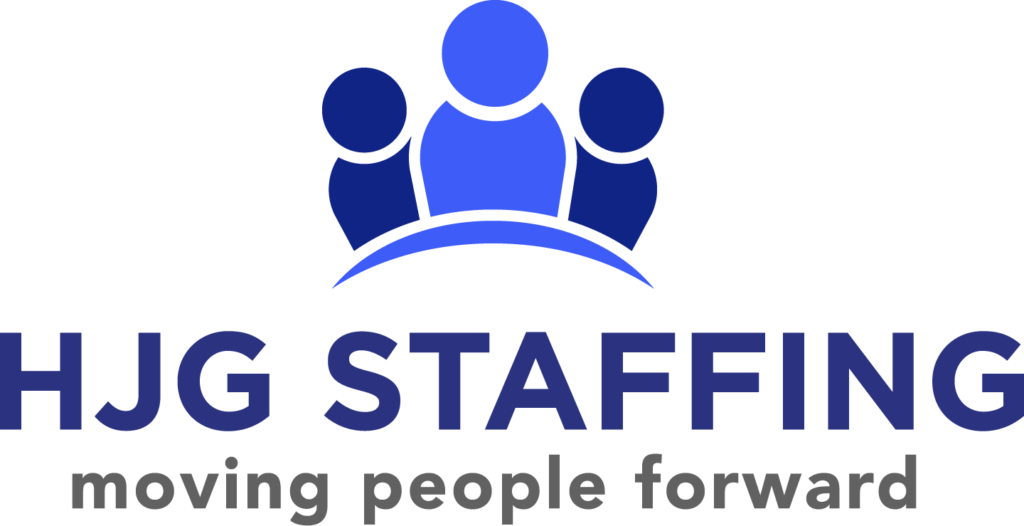For some, the idea of planning career goals is exciting and refreshing. For others, the idea is overwhelming and even depressing. “When I was graduating university, it felt like so many people knew what they wanted to do, and I felt stuck and unsure,” says Clyde. While it feels like some people are born knowing what they want in life, the truth is that many people don’t, and some people are somewhere in between. No matter which camp you fall into, you’re not alone. Even if you feel unclear on your career path, you can still practice goal setting. Let’s look at some ways to create a career plan to help you move towards success.

1. Think Small
The reason so many of us get overwhelmed is simply because we put too much on our plates. When it comes to goal setting, setting small and achievable steps is the way to go.
“I wanted to attend university but bills and health issues overwhelmed me to the point of wanting to give up that dream,” says Shauna, a dental assistant. “I ended up doing one small and manageable task per day to help me get there, and eventually, the small steps became big ones.”
Feelings of overwhelm often come from wanting to do a certain thing and not feeling like we have the time, resources, energy, etc. Therefore, setting small goals can be beneficial. Marathon runners don’t show up to the race without training. It takes time and practice to reach that point. Ask yourself what small thing you can do every day to get closer to your career goals.
Even if you’re unsure of what you want to do, you can still use this practice. Shelly worked in retail and felt confused about what she wanted to do with her life. However, she knew she wanted to grow within her current role. Every day she committed to doing one small thing to learn more about her company. Eventually, she became the manager.

Remember, goals do not have to be big to count. Accomplishing small things every day is a self-esteem booster and even helps with mental health. If you’re feeling confused and overwhelmed, choose the tiniest task and start from there. The results might just surprise you!
2. Think Big
This might seem paradoxical to our first step, but for some, seeing the bigger picture can be incredibly motivating. An effective way to “think big” is to write down everything you wish or hope to do in your career without being concerned about money, time, or the logistics of how it will be accomplished. What would you do if there were no limitations?
This activity can help you get clear about what you want in life. We are often deterred by outside factors: money, responsibilities, stress, etc. Sometimes these things distract or discourage us from what we really want. Also, fear and insecurity can play a factor; after all, it is human to feel insecure sometimes. But when we write our biggest hopes, dreams, and goals, without worrying about limitations, we unlock truths about ourselves and what we want.

For 5 minutes, try writing everything you would do and want out of your career. If a limiting thought pops up, try to let it float by and continue the activity. “I wanted to teach an upper grade level, but it required a master’s degree,” says Talia. “That thought overwhelmed me, because being a teacher is already a lot of work. I had no idea how I would balance full time teaching with attending school, but I found a way.”
Sometimes, the steps to achieving our goals can feel like a lot but focusing on the bigger picture can offer hope and excitement, while encouraging you to continue following your path.
3. Be flexible
If there’s one consistent thing about life, it’s that life is simply unpredictable. We might think we want one thing, but with time discover that we don’t. And that is perfectly okay. Having concrete plans can be comforting and productive but being too rigid about your goals can end up making life more stressful and difficult.

Allow yourself to explore different paths and options. If a career path or dream doesn’t work out, remember that you can try again or try something new. “I was confident I wanted to work as a chef,” says Darren. “I even went to culinary school and worked at a very reputable restaurant. With time, I realized this wasn’t for me, and even though it was scary, I tried something new.”
It’s okay to make changes. It’s okay to think you want one thing and learn that it isn’t for you. If you want to, explore different options, even if you’ve done the same thing for 20 years. It’s never too late to try something new.
4. Be specific!
Being specific about your plans can be incredibly beneficial. Again, this doesn’t mean you have to specify a giant goal. Instead, a specific goal can look like: “I want to finish this project on October 12th by 4 pm in order to be home for family dinner.”
It is proven that people are more likely to accomplish goals by writing them down, so adding specifics to those goals can be even more effective. Specifics can be as simple as adding a timeframe, or as elaborate as multiple steps and different methods.

“I had a goal to get 2 minutes of fresh air every day at work. I knew it would help my mental health, and even though mentally I knew I wanted to do that, I’d get caught up in the workday and forget. Once I started writing on a post-it: ‘I will step outside every day at 2 pm,’ it became a reality,” says John, a sales operator.
It’s okay to be specific, even if your goals don’t happen like you planned. Clarifying what you want can ease your mind and offer clarity.
5. Find a Mentor
Career planning can be overwhelming. That’s why finding someone with experience and knowledge can be helpful and comforting. You’d be surprised to know that most of the successful people in the world experienced countless obstacles before finding success. Sharing stories and gaining knowledge from others can be the difference in moving forward with your dreams and feeling defeated.

Luckily, currently, you don’t even have to meet a mentor in person. There are countless motivational individuals on YouTube, blogs, etc. Specialists in industries offer online courses and advice, many even for free! Hearing stories and guidance from people can
motivate us to continue our path, or it can show us that we want to pursue different goals. Either way, you can learn a lot about yourself and what you want.
6. Don’t Compare Yourself to Others
This is often easier said than done. Sometimes, when we look around, it seems like everyone around us has their lives figured out to every detail. Nancy, a banker, says, “At 30, I was looking around at my friends and peers and feeling like they had accomplished so much more than me. In reality, I had no idea what was going on behind the scenes.”
When we see highlights of life on social media, it can be easy to feel like we aren’t enough. However, it is important to remember that there is no set plan for every age and stage of life. Just because someone might seem successful in their career, ultimately, you have no idea what’s going on in their life.

Comparing yourself to someone else is often the least productive thing you can do. We all accomplish different things at various rates. Just because someone else might seem “ahead” of you in your career, it doesn’t mean you’re a failure or not doing a good job.
If you try your best every day, that’s what counts. There are so many factors that affect our day to day lives. We each have different responsibilities, burdens, and limitations. Remember this the next time you feel inadequate or like everyone is doing better than you.
While career planning can be fun for some and overwhelming for others, it can be broken down into productive steps that move you closer to your goals. Remember, it is okay to take your time and establish what you want to do. It is okay to change your mind. Be as flexible as you can and surround yourself with people and ideas that encourage you to follow your own path. Ultimately, your best will look different than the best of others, and that is perfectly okay.



